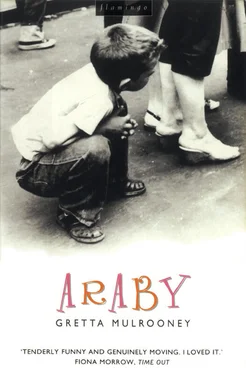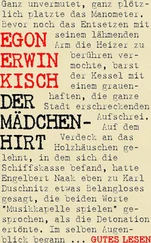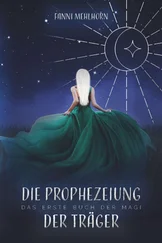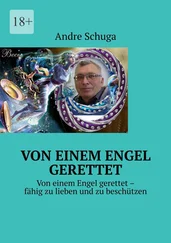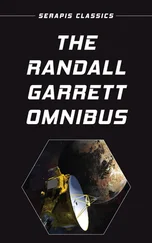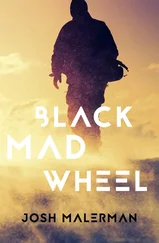The letters spoke of a woman who missed the bustle of London, a woman who’d forgotten that rural silences can freeze you as effectively as any ice. She complained about the price of food, the scarcity of good-quality vegetables, the rain, the lack of a Sainsburys in Fermoy, the battle against the damp along the back wall of the kitchen, the ratty dog from the farm up the road who terrorized their rabbits. There was always a long section dwelling on her major preoccupation, her health; sciatica, rheumatism, water retention, nervous headaches, hot and cold tingles, acid stomach, palpitations and sluggish bowels were listed with the types of agonies they caused. Pain was stabbing, rippling, smarting, shooting, twingeing, griping or throbbing. An exhaustive list of the most recent medicines she had been prescribed was given, with queries about the side effects of the little yellow tablets or the black and red capsules; could they be causing the dizziness or the morning nausea? I could never make my mother understand that as a physiotherapist, I did not have a doctor’s medical knowledge. She knew that I had been to university and sometimes wore a white coat; therefore I should be clued up. The last part of the letter would feed me news of my brother in Hong Kong and I assumed that they did the same to him about me. He and I exchanged birthday and Christmas cards.
And then, just four days ago, an envelope arrived addressed in my father’s hand. I picked it up, knowing that something must be wrong for long-standing routine to be broken. My mother had had a touch of women’s trouble, the brief note inside said, and she was in the hospital for a couple of days while they did tests. Women’s trouble ; what on earth could he mean? My mother was well past the page where that euphemism was usually applied, alluding to gynaecological problems.
I rang him, always a difficult manoeuvre as he was partially deaf, and he sounded relieved to hear me. Too relieved, I thought, a small bell of alarm sounding. I’d get a locum in and fly over, I told him and he shouted back yes, yes, he understood and I had to hold the phone away so that his thin old man’s voice fussed around the kitchen.
The Safety Pin Crossing
I wasn’t frightened of flying but neither did I enjoy it. Not once in the ten years since my parents had moved back to Ireland had I taken the ferry, even though I loved the sea, the humming of the ship and the train journey that would have rattled me there through the Midlands and along grimy Welsh valleys to Swansea.
Ferry crossings were laden with the history of journeys with my mother, a fretful brew of memories. Those trips across the unpredictable Irish Sea stood out in my childhood as a particular purgatory. We had made one each summer for fifteen years, visiting my grandmother for a month. My brother had been there for some but being twelve years older than me, he had soon vanished away to Canberra and then Hong Kong, leaving me to travel alone with my mother. My father would join us for the last ten days and come back with us, allowing someone else to deliver the Royal Mail in south Tottenham.
Perhaps my mother simply hated travelling. Any journey that took her beyond the usual confines of her shopping expeditions brought a fixed, recalcitrant look to her face. Certainly, the build-up in the days before we set off to Cork indicated huge anxiety. As a child, I experienced it as part of the ill-tempered fussing that accompanied any major departure from routine and I dreaded it. Bags would be packed and unpacked, tickets double-checked, masses of food prepared. There was always cold roast chicken wrapped in greaseproof paper and if the journey coincided with a dieting phase, plastic boxes filled with grated carrot and shredded lettuce. All of my mother’s movements became razor-sharp. She slammed doors, trod fast and heavily through rooms and became accident prone, nicking fingers and bruising herself.
Inevitably, a zip or buckle on a bag would break an hour before departure, causing mayhem. My mother would seize and roughly apply brown tape or jab huge stitches with a darning needle, muttering under her breath that somebody – whoever had used it last – must have over-stuffed it, causing it at last to give way. These things were always another person’s fault and it was always her bad luck to be the one who was there when the trap was sprung. As usual, she was the patsy getting the pay-off. While she cursed, the flabby spare flesh on her upper arms wobbling, I would slink away and sit watching the red buses trundle past the window, a sick fluttering in my stomach. I felt hopeless and useless, thinking that there was something I should be doing but knowing that if I tried to help it would go wrong. Then, just as we were about to leave, she would glance at me and find that I was wearing a jacket that made me look like I was on an outing from the orphanage or my hair resembled a duck’s ass or the colour of my shirt suggested that I was going to a funeral. Then I would tell myself that I hated her, that never again would I go anywhere with her, that I deserved a mother who wasn’t grossly fat and bad-tempered.
When I was ten years old there was the journey that I called The Safety Pin Crossing. The sea boiled around the boat. It was crowded with high-season travellers. We couldn’t afford berths and we struggled through the swaying bodies, hampered by carrier bags, trying to find seats for the night. I’ve since heard the ferries to Ireland referred to as cattle ships and it was an accurate description then; the passengers were tightly packed, anxious, breathing each other’s fetid air, fighting their way to taps for water or to toilet bowls to be sick.
We found one empty seat near the end of a row. On the adjacent seat sat a bulging rucksack, ownership firmly declared. My mother bowled it carelessly onto the floor of the aisle and shoved me down, plonking herself beside me.
‘Jesus, Mary and Joseph,’ she said, ‘I’m destroyed. Me feet are like burst spuds.’
She rustled the food bag and extracted a lump of chicken, tearing the goose-flesh skin off with her nails. I refused food, anxiously waiting for the rucksack owner to appear. The ship ploughed and rolled out of the harbour and the sight of glistening chicken flesh made me nauseous. The owner of the displaced bag was young and tall and he turned up after five minutes with a can of beer. He looked at me and gestured with the can.
‘Could the young fella move, Mrs?’ he said to my mother. ‘That’s my seat.’
My mother offered him a blank gaze. ‘Pardon?’ she said in the mock-English accent she employed when she was on her dignity. It was modelled on the Queen Mother’s refined tones, although my mother always referred to her as Lady Elizabeth Bowes-Lyon, as if they’d been on nodding terms in their youth.
‘That’s my seat,’ he repeated. ‘I left my bag on it.’
She looked around, mystified. ‘We found it empty.’
He retrieved his rucksack from the aisle and balanced it between his legs, pointing at it. ‘I left this on the seat. Someone must have moved it.’
She rubbed her chin with a greasy finger, blinking. ‘I don’t know about that. These seats are ours.’
I stared at the floor. In these situations I repeated my seven times table over and over inside my head until it was safe to breathe again.
‘You’re winding me up,’ he said. ‘There’s nowhere left to sit now.’
‘I’m sorry for yeer trouble but what can I do? Me son’s diabetic, he can’t stand for long. Are ye all right, pet?’
She gave my arm a gentle push and I nodded, my cheeks healthily fiery.
‘Seven sevens are forty-nine,’ I ranted to myself, focusing on his desert boots.
‘It’s not fair,’ he said, but you could tell that he was backing off. They usually did.
Читать дальше
